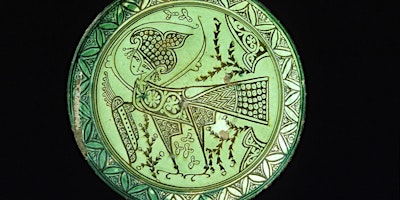You must login before you can post a comment.
Thursday 3 February 18:00 - 20:00
Great Hall, Strand Campus, King's College London
Strand
London
WC2R 2LS
Registration
31st Annual Runciman Lecture: Prof Margaret Mullett
Uncategorized
Great Hall, Strand Campus, KCL
To be preceded by Orthodox Vespers at the King’s Chapel starting at 17:00.
Programme
18:00: Welcome: Professor Gonda Van Steen
Introduction of the speaker: Dr Tassos Papacostas
Word of thanks: Emeritus Professor Roderick Beaton
Abstract: Sir Steven Runciman had some difficulty with Byzantine literature. In Byzantine Civilisation (1933) he described it as standing ‘a little removed from the main stream of the literature of the world’, as lacking ‘a certain creative spontaneity’. He did however rate Digenes Akritas as ‘the one really fine large-scale poem produced in Byzantium’, a text which is a fusion of frontier epic and romance novel. Ninety years later, our views of Byzantine literature are unsurprisingly very different: less evaluative, more analytic. The twelfth century in particular now appears to us a period of remarkable experiment and innovation, revival and renewal. And we have a very large number of texts: the best known like the poems of poor Prodromos, the Lucianic satire Timarion and the four novels are vastly outnumbered by a body of rhetorical material: encomia, funeral orations, inaugural lectures, epigrams and ceremonial poems. These are largely occasional, written for performance and often commissioned. A further group of texts does not conform to either type; they are hybrids, like the centaurs and sirens that weave their way through the manuscript headpieces, the court poetry and ivory boxes of the period. I shall look at five texts: a saint’s life with integrated ascetic anthology, an epistolary narrative of monastic scandal and embassy-tales, a tragedy-cum-Virgin’s lament expressed in Euripidean cento and biblical quotation, a mock epic animal fable with included tragic features, and a legal semeioma combining judge’s lament and a woman’s confession of infanticide and cannibalism. All are extraordinary texts; all raise questions of the generation of text, and of audience, reception, display and performance in the twelfth century, not least the issue of hybridity.
Margaret Mullett began research, on epistolography in Birmingham, in 1970, and in 1974 took up a lectureship at Queen’s University Belfast where she taught for thirty-five years, building an institute of Byzantine Studies and an AHRB centre for cultural history with Newcastle and Sussex. After teaching in Paris and holding a chair of Gender Studies in Vienna, she became Director of Byzantine Studies at Dumbarton Oaks. On her return to Europe, she held visiting professorships at Vienna and then Uppsala. She is working on performance, narrative, emotion, and space in texts mostly of the twelfth century, currently completing studies of tents and of the Christos Paschon. With Susan Ashbrook Harvey, she is preparing a collection of essays on managing emotions in Byzantium. She is professor emerita at Queen’s and an honorary professor at the University of Edinburgh.
Please adhere to the mask requirement and preregister, so we can promptly update you if conditions change.




